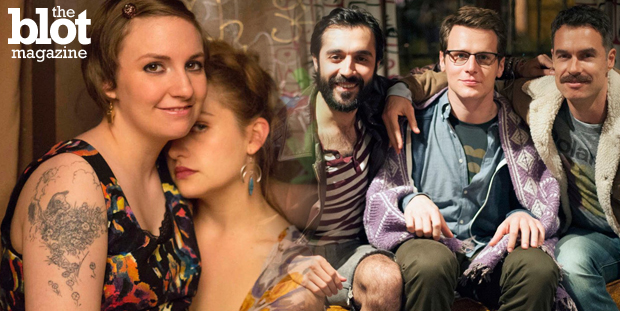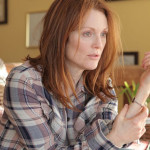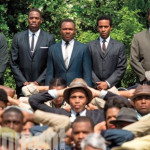
“Looking” is in a precarious place on television. It’s not because the HBO show has gay characters; they’re everywhere on TV. It’s not because people think it’s boring or doesn’t have enough sex. Hell, it’s not even because it’s a little racist. It’s because in trying to represent characters who just happen to be gay and not getting too political, it’s making fairly incendiary implications about what it means to be gay.
But the one thing that the show is doing really well is making Lena Dunham’s “Girls” seem even more genius than critics make it out to be.
The mission of “Looking” is an admirable one. The biggest barrier to ending homophobia is the preoccupation with what makes us different rather than what makes us similar. And yet, rather than focusing on the deep emotional struggles of friends in San Francisco or the type of people we all know, showrunner Michael Lannan has created characters so bland that their quotidian goings-on get eclipsed by their sensational gay lives. It seems like the target demographic is not gay men or the TV-going public at large but voyeuristic heterosexuals who grill their gay friends about Grindr and whoop in delight at their “scandalous” sex stories. It seems like a missed opportunity to convey how gay struggles and gay lives really are just like everyone else’s.
Read more: HBO’s ‘Looking:’ A Breath of Fresh, Queer Air
It’s hard not to compare “Looking” to HBO’s flagship show “Girls” because of its hyperrealism. Both shows make an extensive effort to film in and represent a major city. They capture the completely wild and utterly normal parts of life. But the Judd Apatow-produced “Girls” stumbles on so much. It touches on the elitism and entitlement of millennials, mental illness and sexual relationship dynamics with deeply flawed yet engaging characters. It even manages to tap into what New York City is becoming.
“Looking” just doesn’t go that deep. In its attempt to normalize its gay leads, it neutered them from the wit, charm and resilience that gay men inherently have. A more compelling show could be made with any three queens from around the way. Persnickety Paddy (Jonathan Groff), amoral Agustín (Frankie J. Alvarez) and daddy-loving Dom (Murray Bartlett) don’t have to be the mouth-piece for the gay community. Given their short blow jobs, they might not even be suited to manage that. But they should have some depth and opinions about something.
In the show’s defense, it’s trying to avoid a lot of the politics. In the season two premiere, “Looking for the Promised Land,” which aired on Sunday, Jan. 11, the series touched the topics of HIV, addiction and open relationships, but said absolutely nothing about them.
Read more: Is Lena Dunham a Victim or a Perpetrator? We Think Both.
It’s OK if the series wants to avoid hot-button issues or the same tired political debates, but it doesn’t take the show to a deeper emotional level or give its characters much room to grow. By trying to not say anything, “Looking” says a lot. It inadvertently implies that gay men are just focused on sex, superficial, without morals and vapid. People may get distracted by the self-absorbed characters, self-congratulatory dialogue or Dunham herself, but “Girls” is really well-written. Its characters evolve, and the show’s angriest and most outwardly flawed character Adam (Adam Driver) ironically serves as the show’s emotional compass.
“Looking” isn’t in too much trouble, though. As part of HBO’s programming, it’s guaranteed an audience. Gay men will still either hate-watch it or wait until it “gets good.” But here’s hoping this show with its slow burn waiting to sizzle will go one level deeper to explore how these characters actually contribute to their problems, emotionally react to what’s considered “normal” parts of gay life or just up the ante — or if it will passively do more harm than good and live in the shadow of four girls in Brooklyn who talk a lot.
Christian Cintron is a contributing journalist for TheBlot Magazine.





